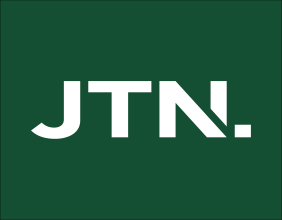Highlights
BAE Systems reported stable progress in 2025 trading, aligning with its full-year expectations.
The company secured major defence contracts from the US military, contributing to long-term revenue visibility.
Strong backlog and capacity expansion efforts support its strategic direction amid evolving global security dynamics.
The defence sector remains a pivotal contributor to national resilience and economic output, adapting continuously to shifting geopolitical climates and advancements in defence technologies. It includes a spectrum of activities ranging from weapons systems development to infrastructure upgrades. Companies within this field often navigate complex challenges such as government budget limitations, evolving compliance mandates, and the constant demand for technological innovation. BAE Systems PLC, listed on the London Stock Exchange under the ticker (LSE:BA), operates as a core constituent among ftse 100 stocks, reflecting the sector’s prominence within broader UK indices.
Current Trading Performance and Revenue Trends
In 2025, BAE Systems reported that its trading performance remains on track with internal expectations. The company maintained its growth guidance across key financial metrics, including revenue and earnings. These updates were shared in the lead-up to its annual general meeting. Projections indicated an increase in both underlying operating profit and earnings per share, marking consistent execution across operational areas. This aligns with the organisation’s focus on operational stability and controlled expansion in a fluid global environment.
Recent Defence Contracts Supporting Production Pipeline
The ability to secure long-term contracts plays a crucial role in sustaining industrial momentum in the defence sector. BAE Systems recently recorded a series of high-value orders from defence authorities, notably for US military programmes. Among these were contracts tied to integration services for the Air Force and additional orders for Amphibious Combat Vehicles. These wins are expected to reinforce ongoing production cycles and secure medium-term income streams while affirming BAE’s capabilities in delivering on complex requirements.
Order Backlog and Capacity Initiatives
BAE Systems continues to report a strong order backlog, supporting visibility into future production and service demand. The company highlighted its robust pipeline and active engagement with clients across multiple jurisdictions. Part of its operational strategy involves enhancing manufacturing efficiency and adapting workflows to match current demand profiles. Such efforts are integral to maintaining resilience in a sector where delivery timelines and performance standards are tightly regulated.
Strategic Planning Amid Industry Challenges
As the defence landscape shifts in response to evolving threats and emerging technologies, companies such as BAE Systems are adjusting operational and strategic priorities. The organisation has placed emphasis on modernising its infrastructure, increasing capacity across select sites, and realigning internal resources to better serve defence programme commitments. These changes are being implemented under the guidance of company leadership, with a focus on long-term performance continuity.
Broader Market Environment and Sector Dynamics
Market dynamics for defence firms are influenced by government spending patterns, international cooperation agreements, and advancements in both cyber and conventional warfare technologies. BAE Systems continues to operate within this complex framework, leveraging its scale and established reputation to maintain a steady contract flow. As a component of ftse 100 stocks, the company's role in the sector underscores the intersection of industrial capability and national strategic planning within the UK and its allied markets.
_09_19_2024_18_05_49_027376.jpg)




